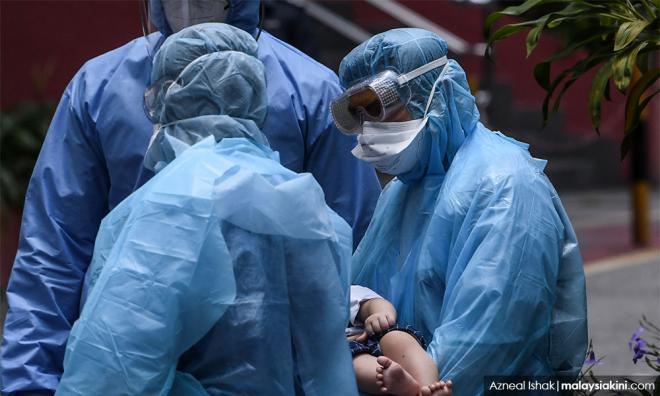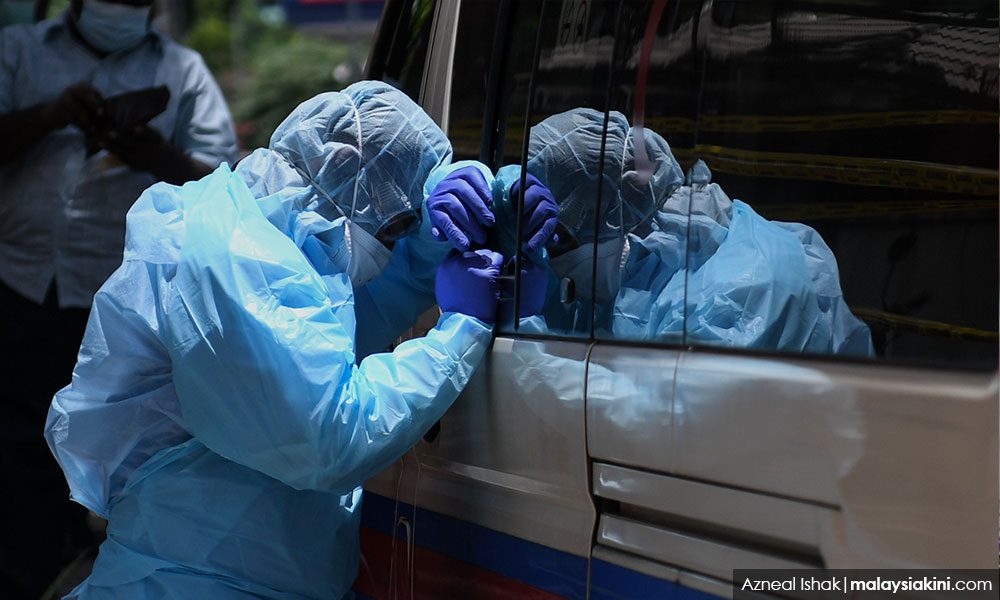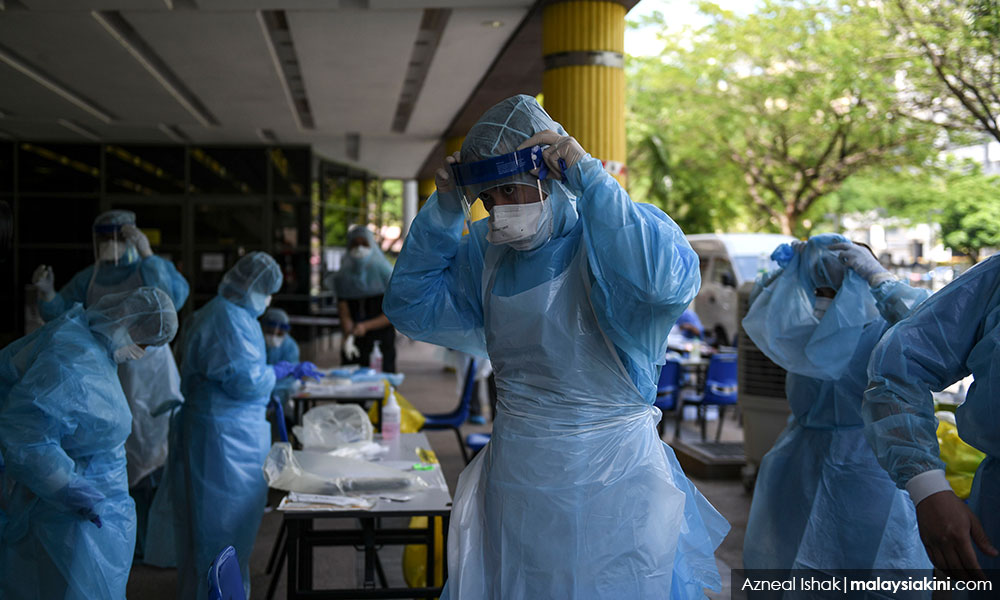
I work as a paediatric intensivist at a government hospital in Malaysia. My paediatric intensive care unit (PICU) team and I care for critically ill children in our region who require intensive care support.
In recent months, paediatricians in government hospitals throughout Malaysia have been spending a lot of time looking after children with suspected or confirmed Covid-19 infection.
We have faced with many challenges, ranging from shortages of Personal Protective Equipment (PPE), losing colleagues and friends to infection and quarantine, and managing personal and family issues exacerbated by the movement control order (MCO).
However, amidst all the pain, drama and sacrifice, we have seen Malaysians from all walks of life rise with immense strength, love and generosity, to overcome these challenges in our own unique way.
The brilliance, fortitude and heroism of our beloved Health Ministry director-general Dr Noor Hisham Abdullah and his team have been well documented in the media.
But there are others, working tirelessly away from the limelight, whose contributions are no less significant.
To my mind, the unsung heroes of this Covid-19 pandemic are myriad. Our psychiatrists and mental health professionals have worked tirelessly behind the scenes, supporting frontliners struggling with severe stress and offering timely psychological first aid.

I am grateful and amazed at the hard work and dedication shown by our healthcare waste management services. Theirs is a difficult, thankless and dangerous job, which offers safety and protection to doctors and patients alike.
Many of these tasks are carried out by foreign workers, who undoubtedly have their own fears and concerns for their families far away. Toiling away in our microbiology labs, laboratory staff are working around the clock to process virus test samples and essential blood tests.
So many Malaysians have quietly stepped up in our darkest moments, without fanfare or publicity, to offer help with food, self-made protective clothing, masks, donations of expensive medical equipment and other essential items.
The police and military personnel have also worked relentlessly to maintain order and keep all of us safe.
I personally know of senior police officers who are working 18 to 20 hours a day, with little regard for their own health and wellbeing. Their dedication and love for our country knows no bounds.
Artists, journalists, writers and musicians around the world have made their works available for free, bringing solace to those of us who are lonely and distressed.
Nevertheless, the challenges and dangers facing Malaysians, especially children, are imminent and very real. The MCO has crippled the earning power of daily wage earners, putting their children at risk of poverty and malnutrition.
In the coming days we could see increasing numbers of children admitted to PICU’s around the country, as daily wage earners run out of money to buy food and medication for their children.
The experience from other countries has shown us that PICU admissions due to physical abuse and neglect are likely to increase during lockdown.
Fears related to the Covid-19 may result in delayed presentation of ill children to hospitals, and even delays on the part of healthcare workers to provide breathing assistance to ill children. Many children may die, although very few will die because of Covid-19 directly.
There has been an unavoidable diversion of healthcare resources away from chronic diseases, to deal with the crisis at hand. Many children and their families are being managed remotely, to avoid hospital visits and reduce the risk of Covid-19 transmission.
Elective surgeries continue to be postponed or cancelled, to free up anesthesiology and intensive care resources. With this immense pressure on our socio-economic and healthcare systems, it is up to parents, caregivers and society at large to keep our children safe.
We must ensure that sick children are recognised and brought to medical attention as early as possible. All children have a right to receive the proper treatment, in the right place, at the right time.
My PICU team and I remind ourselves daily that our duty is to care for the most ill children in the region. This duty remains our highest priority regardless of the ongoing pandemic.
However, many PICU admissions could be avoided with simple preventive measures, such as provision of good nutrition, clean water, immunisation and basic healthcare.

We desperately need to reach out to children at risk, whether due to poverty, neglect or abusive carers. We must hear their cries, and see their need. Any and all concerns for the wellbeing of children must be communicated to the Welfare authorities immediately.
Child protection officers must be equipped with the resources and manpower to effectively safeguard children at risk. Marginalized groups such as refugees, immigrants, indigenous people and undocumented children are at increased risk of illness and deprivation during this outbreak.
Malaysians who are keen to help could consider donating food and essential items to those in need. Many have already started doing this. Identifying those in greatest need and seeing that they receive timely aid is a problem which requires an educated response.
Experienced social workers, NGOs and activists would be invaluable in coordinating these measures. The Welfare Department and social workers must be empowered to identify and facilitate aid for Malaysians in need, without excessive red tape and wastage.
As a nation, we need to urgently look beyond the MCO and plan ahead. Government policymakers have an essential role to play. The economy needs to be restarted very, very carefully.
We need to strike a balance between controlling the spread of COVID-19 and mitigating the immense social, economic and healthcare disruption of a prolonged MCO. In short, we all have a role to play.
If we can think beyond ourselves and figure out how to help others, make our talents available wherever they are needed, live today well and focus on our tomorrows with hope, we can all be heroes. Together.
PRAVIN VASANTHAN is a paediatric intensivist. - Mkini


No comments:
Post a Comment
Note: Only a member of this blog may post a comment.